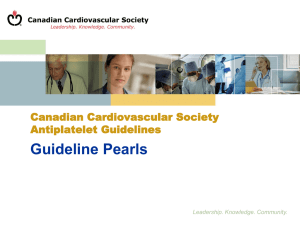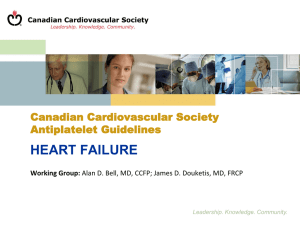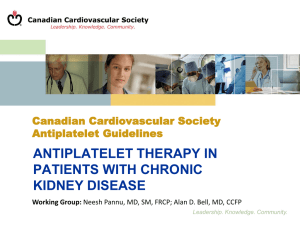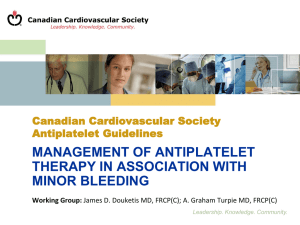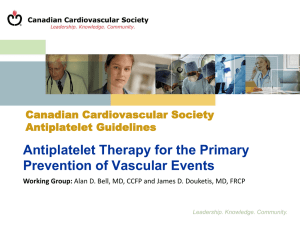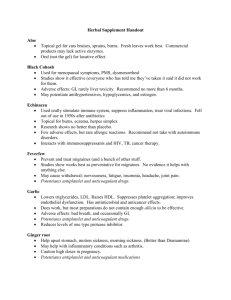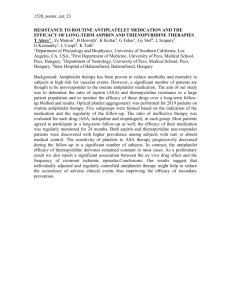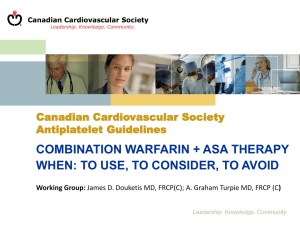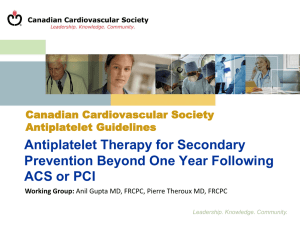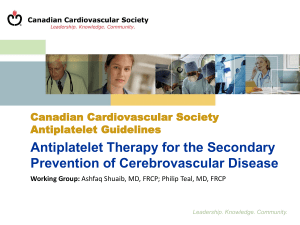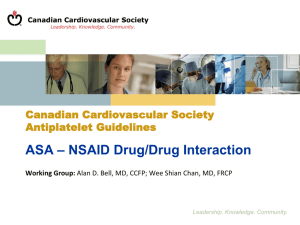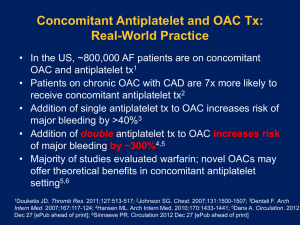Introduction - Thrombosis Canada
advertisement
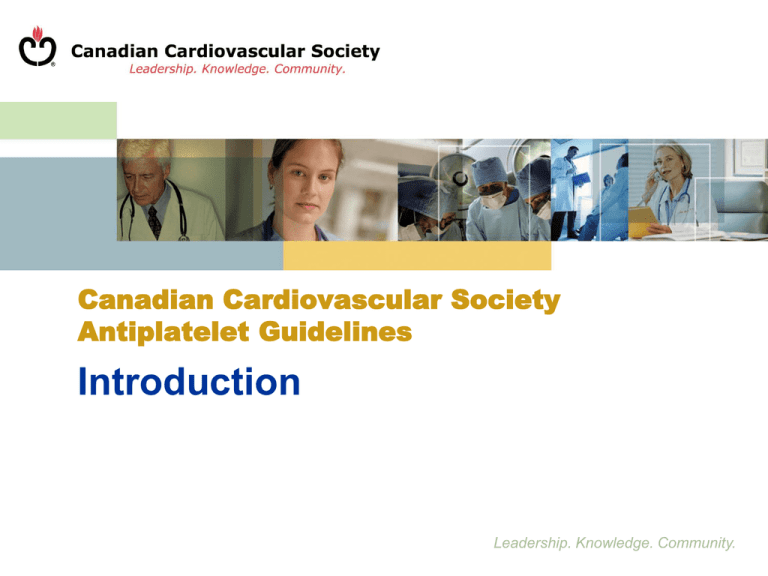
Canadian Cardiovascular Society Antiplatelet Guidelines Introduction Leadership. Knowledge. Community. Objectives Interpret the Canadian Cardiovascular Society Guideline for the Use of Antiplatelet Therapy in the Outpatient Setting recommendations regarding the use antiplatelet therapy for the prevention of vascular events. Recognize the scope of the Guideline. Interpret the Class of Recommendation and Level of Evidence used in the Guideline. Evaluate the rationale, mandate and target audience for the development of the guidelines. Acknowledge the contribution of the Canadian Cardiovascular Society, The Thrombosis Interest Group of Canada and the Authors to the development of the Guidelines © 2011 - TIGC Thrombosis Interest Group of Canada Le Groupe de Travail sur la Thrombose du Canada www.tigc.org B 4 ® Rationale Clinicians need clear guidance on the use of all risk prevention strategies to reduce the burden of ischemic vascular disease. Lipids Hypertension Diabetes Disease states • Coronary, Cerbrovascular, Peripheral Arterial © 2011 - TIGC Mandate/Target Mandate To provide an evidence based, treatment focused guideline for the use of antiplatelet drugs in the outpatient setting. Target audience All health care professionals who manage patients at risk of vascular ischemic events. © 2011 - TIGC CCS Antiplatelet Guideline committee Acute Coronary Syndrome/ Percutaneous Coronary Intervention Jean FrancoisTanguay Robert Welsh Michael Love Stable CAD Anil Gupta Pierre Theroux Cerebrovascular disease Ashfaq Shuaib Phil Teal Peripheral Arterial Disease Andre Roussin Thomas Lindsay Surgical Vascular Disease Raymond Cartier Thomas Lindsay Diabetes Maria Kraw Rémi Rabasa-Lhoret Primary Prevention Alan D Bell James Douketis Special Topics Heart Failure Alan D Bell, James Douketis Chronic Kidney Disease Neesh Pannu, Alan D Bell Pregnancy and Lactation Wee Shian Chan Surgical /BleedingManagement James Douketis, Graham Turpie Antiplatelet agents + Warfarin James Douketis, Graham Turpie Antiplatelet Drug Interactions Alan D Bell, Wee Shian Chan © 2011 - TIGC Class of recommendation Level of evidence I: Evidence and/or general agreement that a given diagnostic procedure/treatment is beneficial, useful and effective A: Data derived from multiple randomized clinical trials or meta-analyses IIa: Conflicting evidence and/or a divergence of opinion about the usefulness/efficacy of the treatment with the weight of evidence in favour B: Data derived from a single randomized clinical trial or large nonrandomized studies IIb: Conflicting evidence and/or a divergence of opinion about the usefulness/efficacy of the treatment with the usefulness/efficacy less well established C: Consensus of opinion by experts and/or small studies, retrospective studies, and registries III: Evidence that the treatment is not useful and in some cases may be harmful © 2011 - TIGC Educational modules Use of antiplatelet agents in: ACS and PCI Chronic Kidney Disease Stable CAD Concomitant PPI Cerebrovascular Disease Concomitant NSAID Peripheral Arterial Disease Concomitant Warfarin Primary Prevention Minor Bleeding Diabetes Pregnancy and Lactation Heart Failure Perioperative Management Guideline Pearls © 2011 - TIGC © 2011 - TIGC
